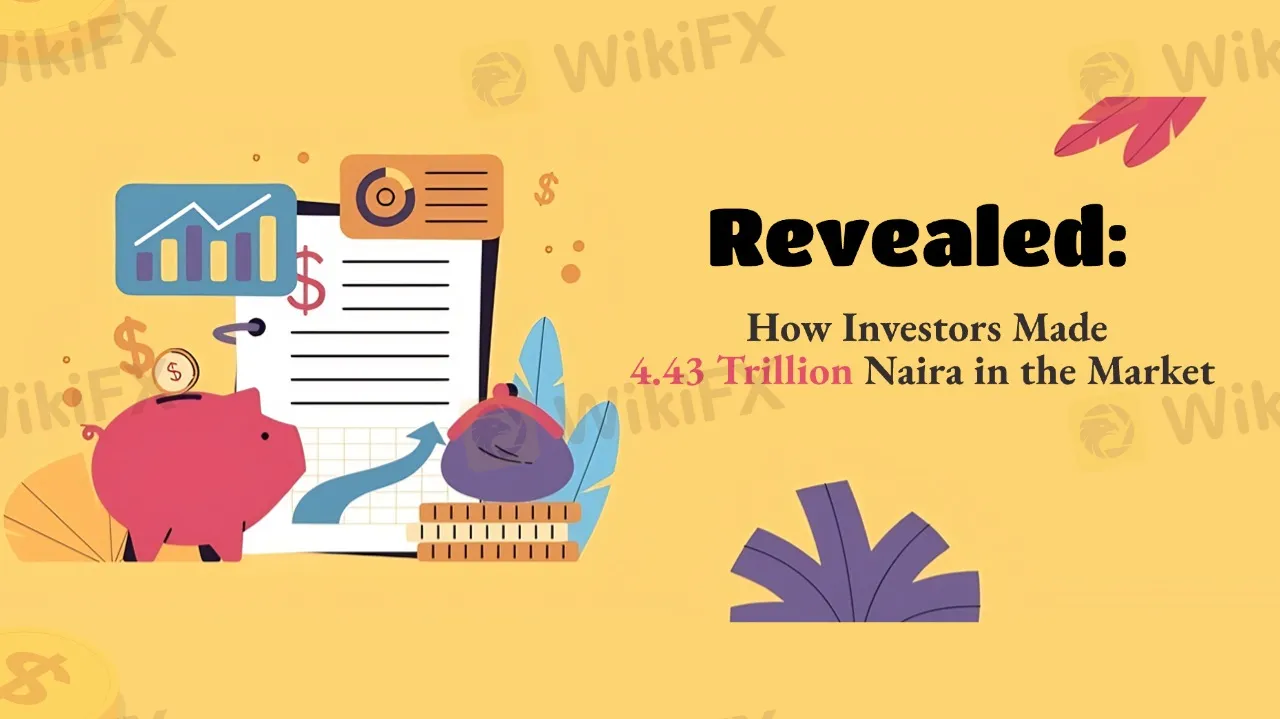Revealed: How Investors Made 4.43 Trillion Naira in the Market
Abstract:The Nigerian stock market experienced a significant surge in the first two months of 2025, with investors gaining ₦4.43 trillion. Behind this bullish trend, policy adjustments, market expectations, and capital flows played a crucial role.

At the beginning of 2025, the Nigerian stock market witnessed strong growth, with the All-Share Index (ASI) rising from 102,926.40 points to 107,821.39 points, marking a 4.76% increase.
During the same period, market capitalization grew by ₦4.43 trillion, reaching ₦67.193 trillion. Several sector indices performed well, with the NGX Lotus II Index leading the gains at 11.23%, followed by the NGX Premium Index at 7.76%, and the banking sector index rising by 7.49%. This bullish trend resulted in substantial profits for investors and heightened market optimism.
Policy Adjustments Fuel Market Growth
The strong performance of the stock market was closely linked to monetary policy adjustments by the Central Bank of Nigeria (CBN). With inflation declining, the CBN significantly lowered Treasury bill rates, prompting investors to shift more capital into equities.
Additionally, banking sector capital restructuring, new stock listings, and stable market policies further strengthened investor confidence. Notably, the listing of major corporations such as the Nigerian National Petroleum Company (NNPC) and Dangote Refinery enhanced market liquidity, attracting additional investments.
Future Market Outlook and Key Considerations
Market analysts generally expect the positive trend in the Nigerian stock market to continue in 2025, especially as corporate earnings and dividend declarations for the 2024 fiscal year are set to be released.
However, investors still need to monitor key factors such as national economic growth, the direction of monetary policy, and corporate earnings performance. Furthermore, exchange rate fluctuations and inflationary pressures may continue to impact the market.
Read more

TradingPRO: A Closer Look at Its Licences
In an industry where safety and transparency are essential, the regulatory status of online brokers has never been more important. For traders seeking to protect their capital, ensuring that a platform operates under recognised and stringent oversight can make all the difference. Keep reading to learn more about TradingPRO and its licenses.

Oil Price Breakout Incoming? Investors Should Stay Alert
Oil prices are hovering around a critical level, with potential yet to be fully unleashed. Investors must prepare for sudden changes.

New SEBI Regulations on Intraday Trading
The Securities and Exchange Board of India (SEBI) has implemented revised regulations on Intraday trading, with effect from November 20, 2024. These regulations are meant to lessen risks and prevent speculative trading practices.

Top Forex Trading Strategies Every Trader Must Implement
Successfully navigating the fluctuating forex market landscape requires more than having a high-risk appetite. It requires effective strategies that assure you gains even during the market fall. Let’s go through the strategies many traders implement to gain.
WikiFX Broker
Latest News
ASIC Urges Financial Licensees to Fix Register Errors Before 2026 Deadline
eToro Review 2025: Top Trading Opportunities or Hidden Risks?
How much money will you earn by investing in Vantage Broker?
IronFX vs Exness Review 2025: Comprehensive Broker Comparison
Fraudsters Are Targeting Interactive Brokers' Users with Lookalike Emails
Everything you need to know about ADSS
SkyLine Guide 2025 Malaysia: 100 Esteemed Judges Successfully Assembled
Vantage Markets Review 2025: Trusted Forex and CFD Trading Since 2009
Top Tips to Choose the Best Forex Broker in 2025
SEBI Notifies New F&O Rules for Investors - New Derivative Trading Limits & More Amendments
Rate Calc
